Have you ever wondered how often you are influenced by other people?
And I am not only talking about influencers we come across on social media – I am referring to everyday situations in which your behavior is under the influence of the people surrounding you, some of which are close to you, and others you have never even laid your eyes upon.
The answer might surprise you. Stick with me throughout this blog while I explain how psychology and marketing are connected, mainly focusing on the phenomenon of social proof.
What is social proof?
Social proof is a term created and popularized by Robert Cialdini, an American psychologist and the author of the book Influence: Science and Practice. The term was constructed in 1984 and is also known as the informational social influence. It is both a psychological and social phenomenon that explains how people rely on and copy the actions of others to plan and adjust their own behavior in certain situations.
Try to visualize the next scenario: you are attending a social event for the first time and are not quite sure how to act or behave in said situation, so you are most likely to observe the people around you, study their behavior and social interactions, in order to adjust or correct your own actions. This is a natural occurrence for humans whenever they are faced with new situations and surroundings, because we all like to ensure that we are fitting in and acting in the way it is expected of us.
When it comes to social proof in marketing, it mostly relies on customer reviews, recommendations, and other ways in which people describe or testify about the quality of certain products or services, and their experiences with them.
In the 80’s, when the term social proof was constructed, its use in marketing had primarily revolved around mouth to mouth marketing. Today, in the world of digital and social media, social proof is everywhere: we see it in online reviews, social media posts by ordinary people, media coverage, and many of us are a part of online communities dedicated to reviewing products and services, where we seek information prior to buying or using something for the first time.
Why is social proof important?
Marketing is more often than not quite dependent on psychology. Why? Because you can not reach your audience, assure they understand your messages, or encourage them to behave in expected ways, without understanding them, their behavior and thought processes.
So, why is social proof in marketing important?
- It has a great value in drawing more sales to businesses.
- It is one of the most motivating forces in the shape of the bandwagon effect (a concept that explains that people are more likely to engage in certain behaviors and actions if many other people are doing the same).
- It is an effective method to convey trust and develop customer loyalty.
- It allows companies to incorporate the voice and opinions of their customers into their marketing stories.
The list goes on and on. Let’s include some numbers to further paint the picture of social proof.
- 93 % of customers read reviews online prior to making a purchase.
- 94 % of customers say they have avoided a company because it has negative reviews.
- Businesses that have over 200 reviews earn twice as much revenue compared to businesses who have less than 200 reviews.
- Companies that have star ratings between 4.2 and 4.5 are most trustworthy in the eyes of the customers.
- 87 % of online shoppers think that social media platforms help them in the process of making purchase decisions.
Types of social proof
Taking into account that social proof exists as long as marketing does, during decades, even centuries, many types of social proof were created: testimonials, customer ratings and reviews, endorsements, case studies, social shares, media coverage, awards and accolades, user generated content (UGC), and many others.
Some of the aforementioned types of social proof are more suitable for e-commerce, some are better for physical stores and shops, and some are great for every type of business. Let’s dive deeper into the specifics of the five most popular types of social proof today.
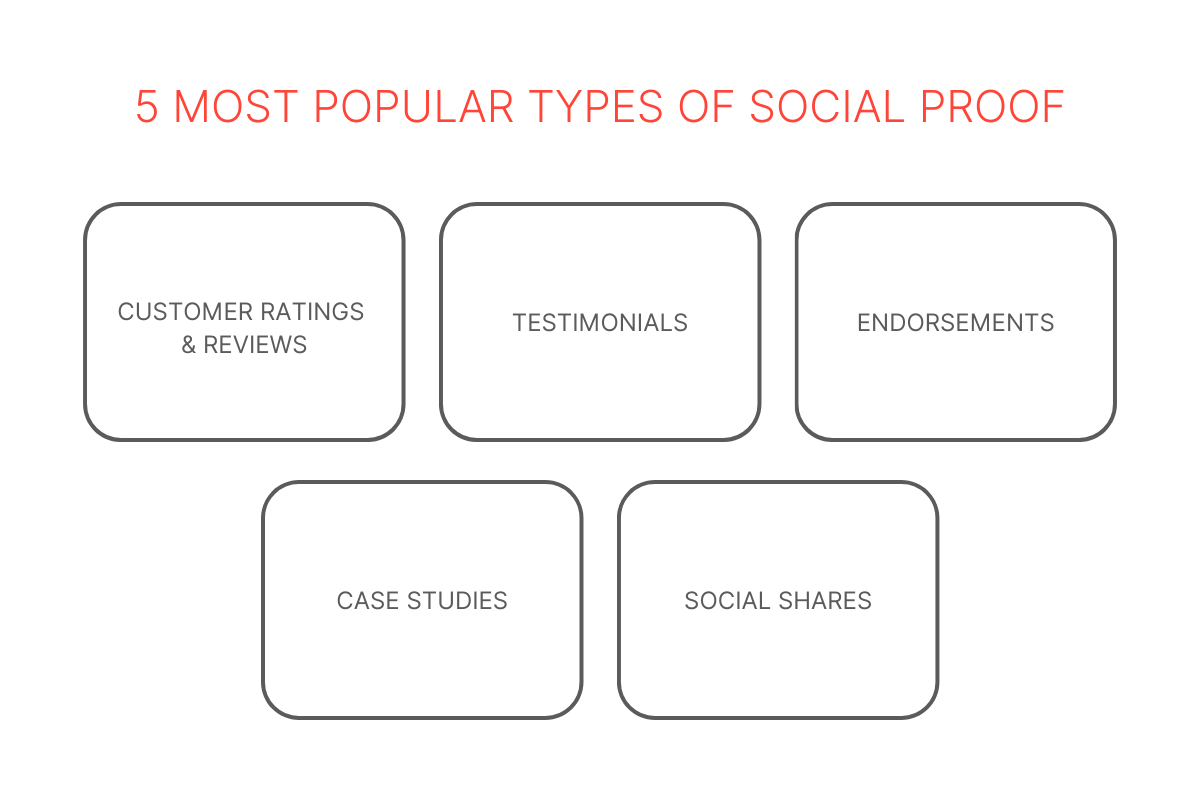
Customer ratings and reviews
Probably one of the most popular and most commonly used types of social proof are customer ratings and reviews. They are also the most sought after whenever a customer wants to collect information before making a purchase. They can appear in the form of a star rating (most commonly one to five stars), in the form of brief, short sentences which suggest whether the customer was satisfied with the product/service or not.
Companies and brands present their ratings and reviews via Google snippets, special sections or carousel formats on their website, or create a new landing page dedicated to showcasing them. In recent years, many specialized platforms have been created, dedicated exclusively to ratings and reviews, Yelp being one of the most famous.
What many businesses think is they need a 5.0 rating, which is almost impossible to achieve, and is not a great thing to have. It is better to have a large number of ratings and reviews, forming the final rating of 4.0 to 4.7, rather than a small number of ratings and reviews, but the final rating of 5.0. Why is that so? Because it is impossible to be liked by everybody and to have the perfect score – it raises the customer’s concern that you manipulated the numbers or deleted negative reviews and lower ratings.
Testimonials
Testimonials are longer forms of customer review in which they present their experience or opinion about the product or service. A typical testimonial can consist of barely two sentences or a whole novel that describes in detail everything good or bad about the product. The length of the testimonial is not of the utmost importance, because either one can influence the behavior of future customers.
There are numerous ways to use testimonials. Some companies create a special landing page on their website to present customer testimonials; other companies highlight them in dedicated sections of their homepage; some go even further and post them on their social media profiles. There is no right or wrong way to present testimonials; each company or brand decides what works best for them.
Endorsements
Endorsement happens whenever an authority figure or group of influential people in the industry gives their approval of certain products or services. It is a type of social proof which gained popularity with the rise of social media and digital platforms.
Endorsements can range from expert opinions made by experienced medical professionals about health supplements, social media influencers who recommend beauty and skin care products, or famous chefs who talk about kitchen appliances.
Why are endorsements effective? It is because people resonate better with recommendations made by experts or influential people they are familiar with, who also represent a type of authority in some aspects of their lives. They are not likely to take advice about anti-aging products from a mechanic or a worker in a post office, but they probably will from a dermatologist or a skin care influencer.
Case studies
A case study represents a more detailed approach to social proof. It describes the whole journey a client or a customer had with a company or a brand, but it can also include perspectives from several different clients or customers.
Typically, case studies dive deep into the experience between a company and its client, describing how they collaborated and worked together to achieve their goals. It is a valuable tool for companies in many different industries, especially the ICT industry.
Social shares
First thing first, businesses and companies need to have a strong social media presence, as strong as it is relevant for their customers and audiences. They need to engage with their followers and fans, build relations and loyalty, and then social sharing starts making sense as a type of social proof.
How can social media and social sharing be used to achieve social proof? In many different ways. All the other types of social proof can be shared on a company’s social media channels (testimonials, case studies, positive reviews and ratings, endorsements from influential people etc.). Aside from that, businesses can encourage their followers to create user-generated content and then repost it. They can also use positive social media comments as testimonials on their website, show their social media follower counts on their website in order to highlight their connection with their customers. There are numerous ways to choose from, and each brings something valuable to the table.
Examples of social proof in marketing
Examples of social proof in marketing can be found everywhere. Every time you are searching for a product, you come across multiple examples of social proof. Let’s see which ones we chose for this blog.
Amazon
One of the biggest, if not the biggest online shopping platform – Amazon, has millions of different products, and each one of them has customer reviews and star ratings. The number of reviews and ratings can reach several thousands or even millions, depending on the product’s popularity.
For instance, Apple AirPods Max Wireless Over-Ear Headphones have a 4.6 star rating out of 5, with 13,010 global ratings. A great way for potential buyers to gain insight into this product before even buying it.
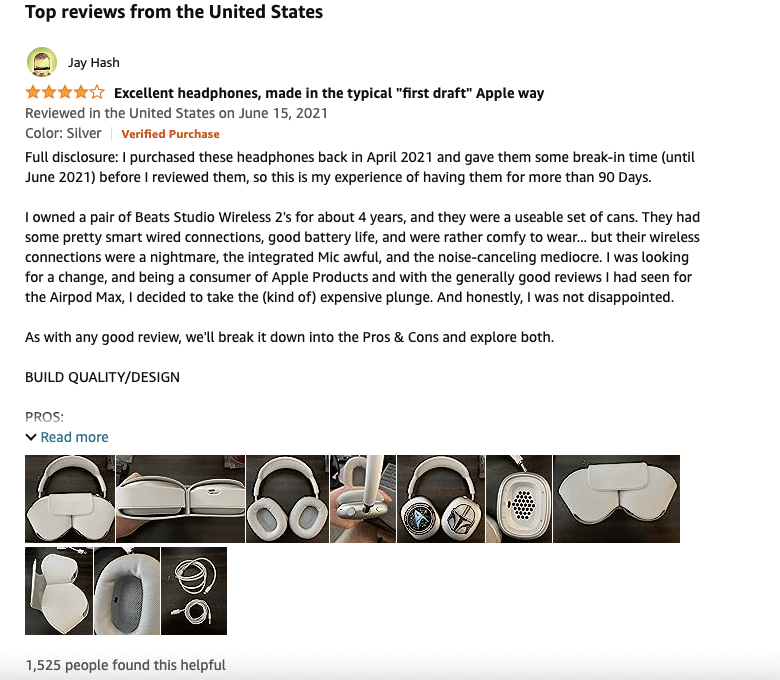
Luppa
How can we not mention our own tool, luppa.app that tracks and improves employee satisfaction and engagement? Rhetorical question, of course.
On the home page of the Luppa website several clients’ testimonials are visible to showcase their satisfaction. This improves the company’s transparency and openness, proves its quality and attracts potential new clients.
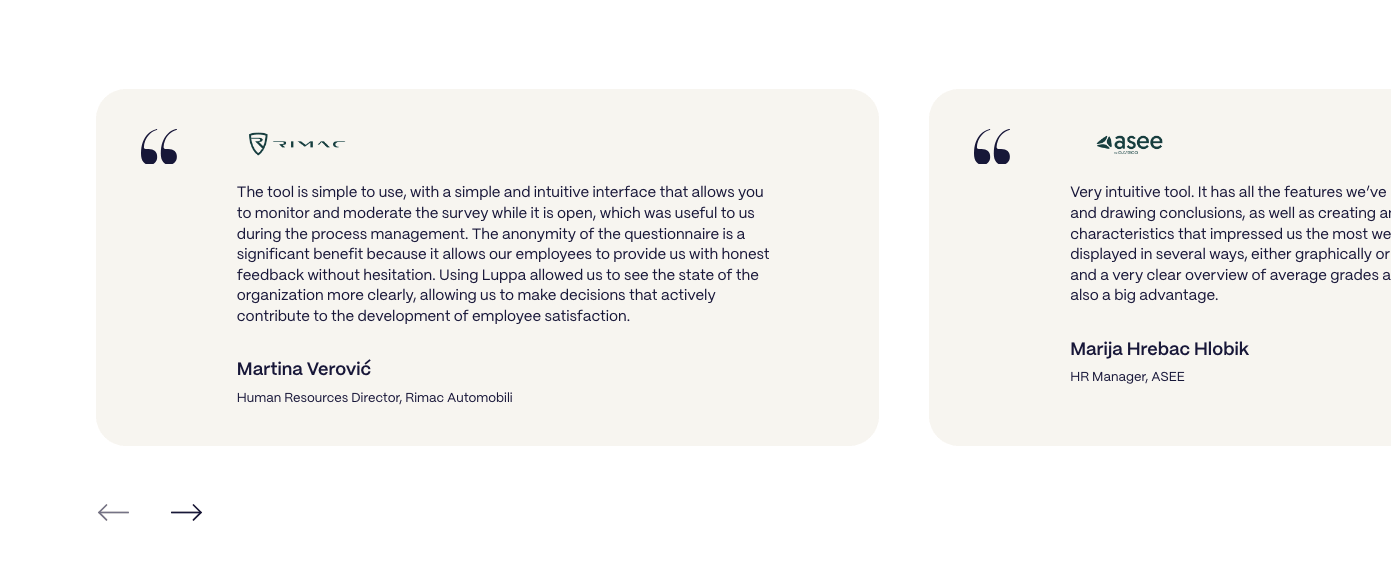
Nike & Christiano Ronaldo
Is there anyone who has not heard about one of the most successful and famous footballers in the past two decades, Christiano Ronaldo? It is not a surprise Nike chose him to endorse their brand and made him their brand ambassador for 2022. With more than 600 million followers on Ronaldo’s Instagram profile, he gains visibility for Nike like nothing else can.
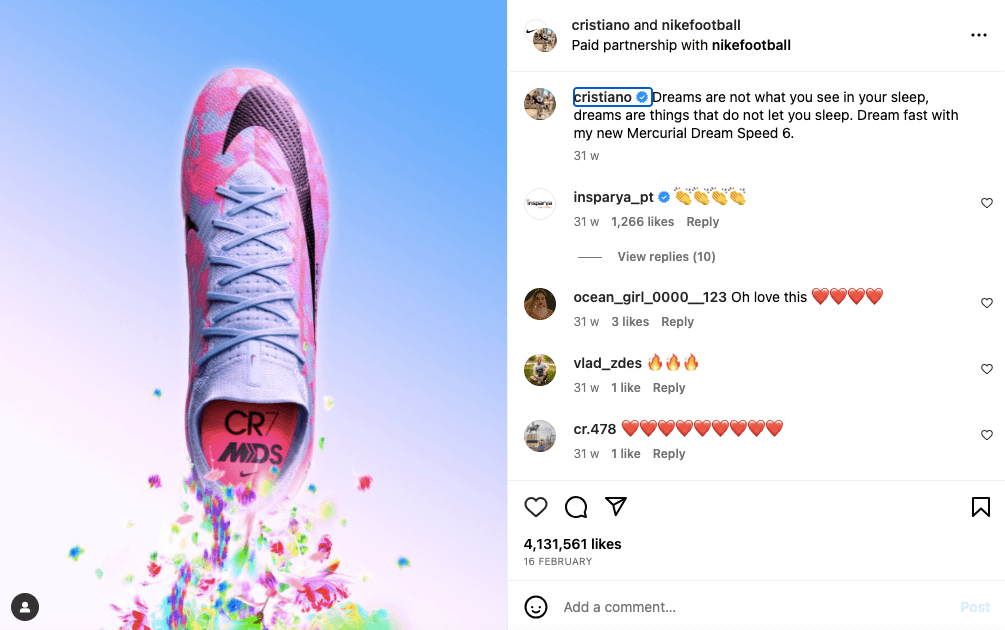
Degordian & Camping Village Šimuni
Who said a case study needs to be done in writing? It can also be shown through a video panel, just like we did with our client of 10 years, Camping Village Šimuni. Our own Tea Logožar sat down with Kristina Dominić, who is a Marketing Manager for the client, and they talked about our collaboration that has lasted 10 years. It all started with creating a new website and social media profiles, and continued with building a complete digital presence for Šimuni.
This video case study highlights the key factors for maintaining long-term collaboration with clients while presenting the most successful campaigns during the 10-year-long time.
Social shares
How can we talk about social shares without including the ever present Netflix? They sure know how to use social media trends to their advantage and encourage social proofing globally. From their Instagram profile which is filled with funny memes and trendy Reels videos related to their movies and TV shows, all the way to their TikTok account, which keeps you scrolling more and more and more.
Netflix uses already existing trends, but also starts its own, to create social media content that is both interesting and relatable to their audience. Every time a trend goes viral and millions of users online start creating more content about it, Netflix gains more popularity, more users on their platform, and more hours of watched content. Just remember the Wednesday Addams dance on TikTok – everybody jumped right up on that train.
How strong the TikTok effect on customers can be, is also visible through another TikTok trend we covered in one of our blogs earlier – #TikTokMadeMeBuyIt: Why you should consider advertising on TikTok now. Check it out!
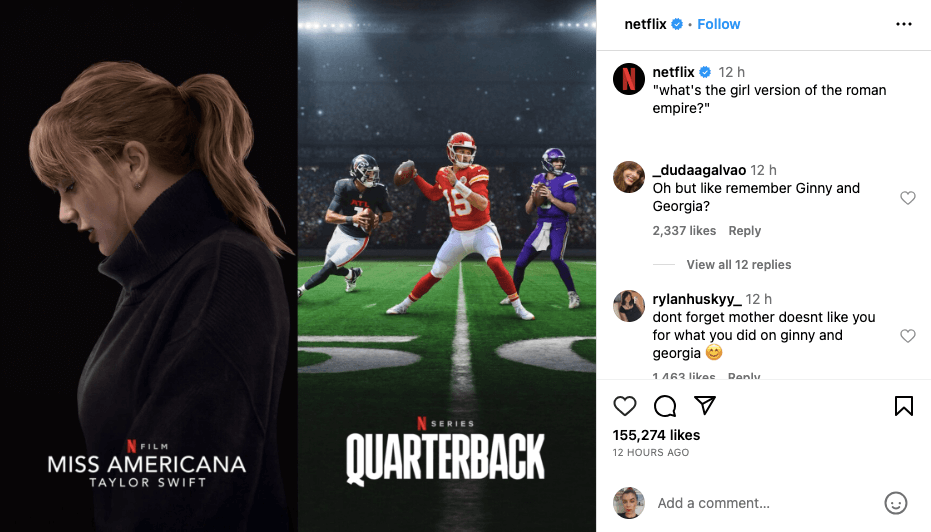
Final thoughts
Now that you have gotten acquainted with the different types of social proof, are you able to answer my first question? Have you ever wondered how often you are influenced by other people?
For the average person living in today’s world, the answer is probably: non stop, all the time. TV, social media, radio, billboards, friends, family, social gatherings and events, music, books – so many things and people influence us on a daily basis, which is why social proof is a powerful tool for anyone aiming to expand their customer base or client pool.
It works wonders because it relies on a basic human need that applies to most people – to fit in with the rest of the crowd.




